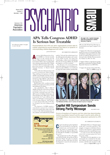The increase in the number of uninsured Americans has lent force to an idea that could threaten state parity laws.
According to the Department of Labor, 39 million Americans lack health insurance. That number has grown by about 8 million during the last decade.
The Congressional Budget Office reports that uninsured workers are usually employees of small firms. Among private sector firms with fewer than 50 employees, health benefits were offered at only 47 percent of work sites in 1999, compared with a 97 percent offering among larger firms.
According to the Department of Labor, small businesses are inhibited from offering coverage because insurers typically charge them more per employee because they are in a poor negotiating position and because of the cost of state-mandated benefits.
To address these problems, the House of Representatives passed the Quality Care for the Uninsured Act of 1999 (HR 2990), but the Senate did not act on the bill. This legislation called for establishing association health plans (AHPs) and HealthMarts, two new vehicles for offering health insurance coverage to small employers. AHPs are group health plans whose sponsors are trade, industry, professional, or similar business associations. HealthMarts are group health plans whose sponsors are small employers and health care providers.
In 2001 Rep. Ernest Fletcher (R-Ky.) and Sen. Tim Hutchinson (R-Ark.) introduced the Small Business Health Fairness Act (HR 1774, S 858), which would amend the Employee Retirement Income Security Act of 1974 (ERISA) to establish rules governing AHPs.
Administration Supports AHPs
On September 13 the Department of Labor released a report, “Association Health Plans: Improving Access to Affordable Quality Health Care for Small Businesses.”
The report called AHPs “a key part of the solution” to the problem of the uninsured. The report also praised AHPs because “by operating under federal law, [they] can avoid the cost of state benefit mandates.”
It lists as an “AHP advantage” the fact that other insurance offerings are hampered by the “high cost of having to comply with the requirements of up to 50 state insurance regulators, including state-mandated benefit requirements.”
On September 30 Labor Secretary Elaine L. Chao called on Congress to pass the AHP legislation. In a written statement, she said, “Association health plans would equalize the playing field for small businesses but, more importantly, would result in health insurance coverage for millions of uninsured workers and their families.”
The Department of Labor report lists 32 organizations that support the proposed legislation. Among them are the National Association of Manufacturers, the U.S. Chamber of Commerce, and the National Federation of Independent Businesses.
Alice Weiss, J.D., director of Health Policy at the National Partnership for Women and Families, described some of the hazards of the legislation to Psychiatric News.
“Since AHPs can operate across state lines, insurance companies will migrate to the states with the least-restrictive requirements in terms of parity. They will be able to offer insurance in a state without adhering to any of its hard-won consumer protections,” she said.
The legislation specifies that an AHP cannot exclude any “specific disease from coverage,” but does not provide protection for the kind of categories of mental disorders that generally are listed in parity legislation or for the extent of treatment that must be offered.
Advocacy Organizations Protest
With the support of APA, 26 organizations signed on to a letter about the proposed legislation sent to Sens. Thomas Daschle (D-S.D.) and Trent Lott (R-Miss.).
The letter argued that rather than improving access to insurance for small businesses, “an AHP exemption would only create a massive loophole for these plans to avoid important state reforms designed to make coverage affordable and accessible for all small employers and their employees.”
The signatories also expressed concern that an exemption from state oversight would place consumers at a much greater risk for fraud and abuse because, they alleged, the federal government has neither the enforcement tools nor the resources needed to ensure appropriate oversight of these insurance arrangements.
The signatories to the letter included insurance companies, unions, and disability advocacy organizations.
Jay Cutler, J.D., director of APA’s Division of Government Relations, told Psychiatric News, “District branches and psychiatrists throughout the country have fought tenaciously to enact parity legislation at the state level. We will work with other organizations to do our part to ensure that their valuable work is not undone at the national level.”
“Association Health Plans: Improving Access to Affordable Quality Health Care for Small Business” is posted on the Web at www.dol.gov/pwba/pdf/ahp-report.pdf. ▪
